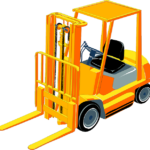
Image by Clker-Free-Vector-Images from Pixabay
By Henry Brown
Plenty of small businesses – especially eCommerce small businesses – need warehouse space to store and ship products. Finding the right warehouse space can significantly affect your business’ success.
What to look for when looking for a warehouse
Each small business is different, and so each company’s specifications for a warehouse will change. However, there are a few factors that are universal to most small businesses.
This list is non-exhaustive but outlines some of the essentials:
– Safety and security – you don’t want your stock being stolen.
– Location – is it close to your key delivery sites?
– Size – how much stock can you fit into the warehouse? Do you have room to grow?
– Accessibility – can you easily move products in and out of the warehouse?
– Emergency protocols – will your business, its workers, and your stock be protected in an emergency? How safe is the actual warehouse structure? For example, modern commercial metal buildings will provide better fire protection than older types of construction.
– Appliances – what technology comes with the warehouse?
– Delivery times – how quickly and responsibly will stock be delivered from this warehouse?
Types of warehouses
So you know what you’re looking for. But what types of warehouse spaces are available to you?
Public warehouses
Public warehouses, while owned by the government, are available for use by private companies. They can be used for both work and personal use. Often, public warehouses are cheaper to use, though they lack the technological advances of other options.
Public warehouses tend to be best for those looking to store goods for a short period. Therefore, startups can benefit from this type of warehouse.
Private warehouses
Private companies own private warehouses – often distributors, manufacturers, or wholesalers. These warehouses are expensive and so suit large retail or online businesses.
This warehouse type is a significant investment, so small businesses should only take it on if they are sure of their longevity. Due to its private nature, extra costs come with private warehouses in terms of upkeep and insurance. Avoiding accidents in the warehouse is vital when you own a private warehouse, as compensation comes down to you.
Consolidated warehouses
Consolidated warehouses are for a specific purpose. They take smaller shipments and bundle them into one larger one. This is then shipped to the location they all share. Consolidated warehouses are excellent for small businesses, as they reduce shipping costs and fulfill orders promptly. Plus, consolidated warehouses often have low capital investment requirements, perfect for those starting out.
Distribution centers
These are likely the type of warehouse that first comes to mind. Distribution centers are predominantly storage spaces. However, they can be altered to specific requirements – perfect for small businesses with a lot of stock. Distribution is carried out quickly, but there is space for long-term storage. Often these spaces are affordable and achieve the simplicity that comes with small businesses well.
Which should you choose?
Depending on the requirements of your small business, which warehouse suits you best will depend. Think about the cost, but also the long-term plan you have for your business. It may be wiser to make a more considerable investment if it pays off for you in the long run.
______
Henry Brown is an online marketing executive. When he isn’t talking shop, he’s roaming the streets of London, uncovering the extra-ordinary in the ordinary.

Thanks for explaining so well. Your article helped me a lot in understanding the warehouse. I think now I know which warehouse I need for my small business. Keep sharing more!